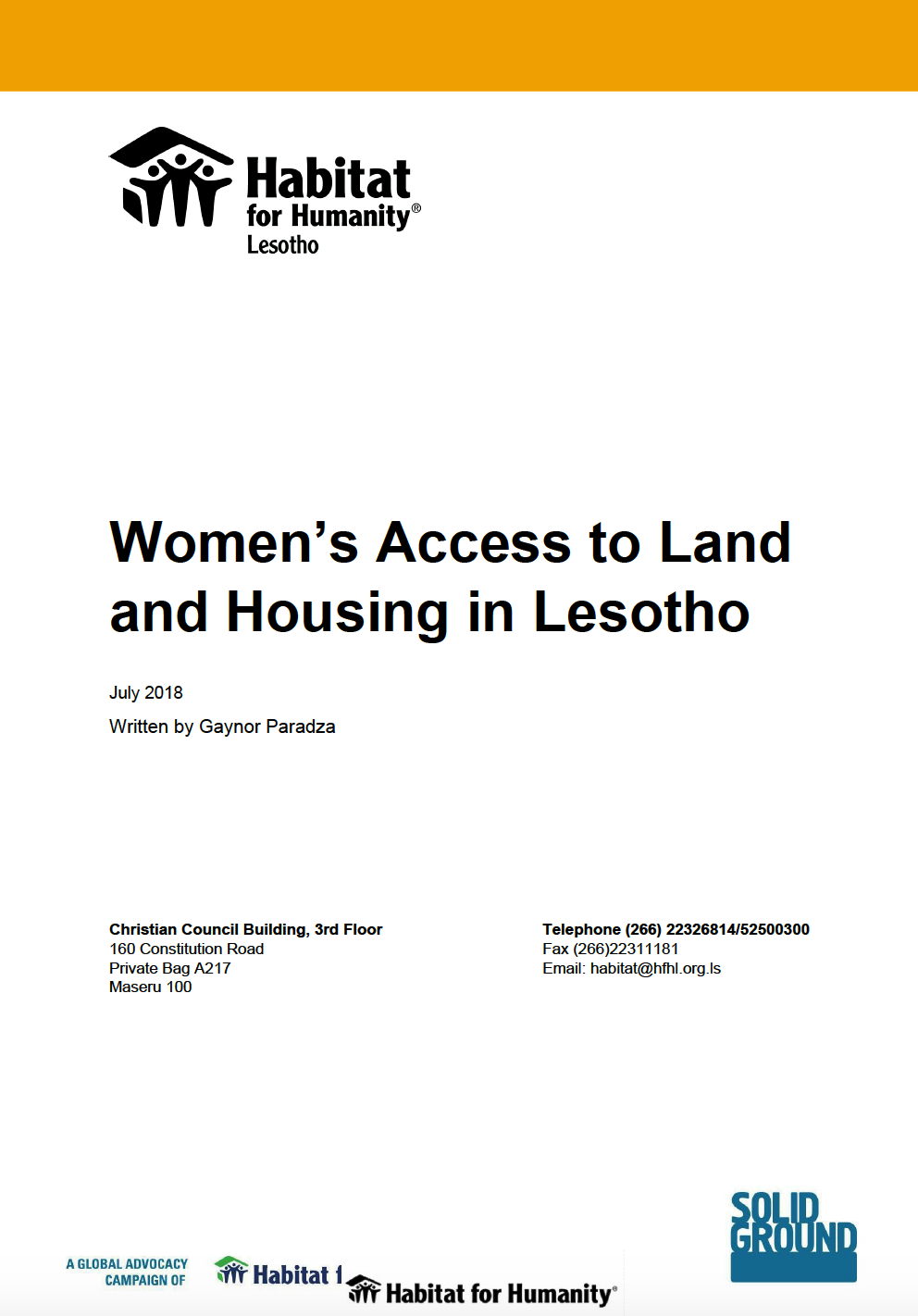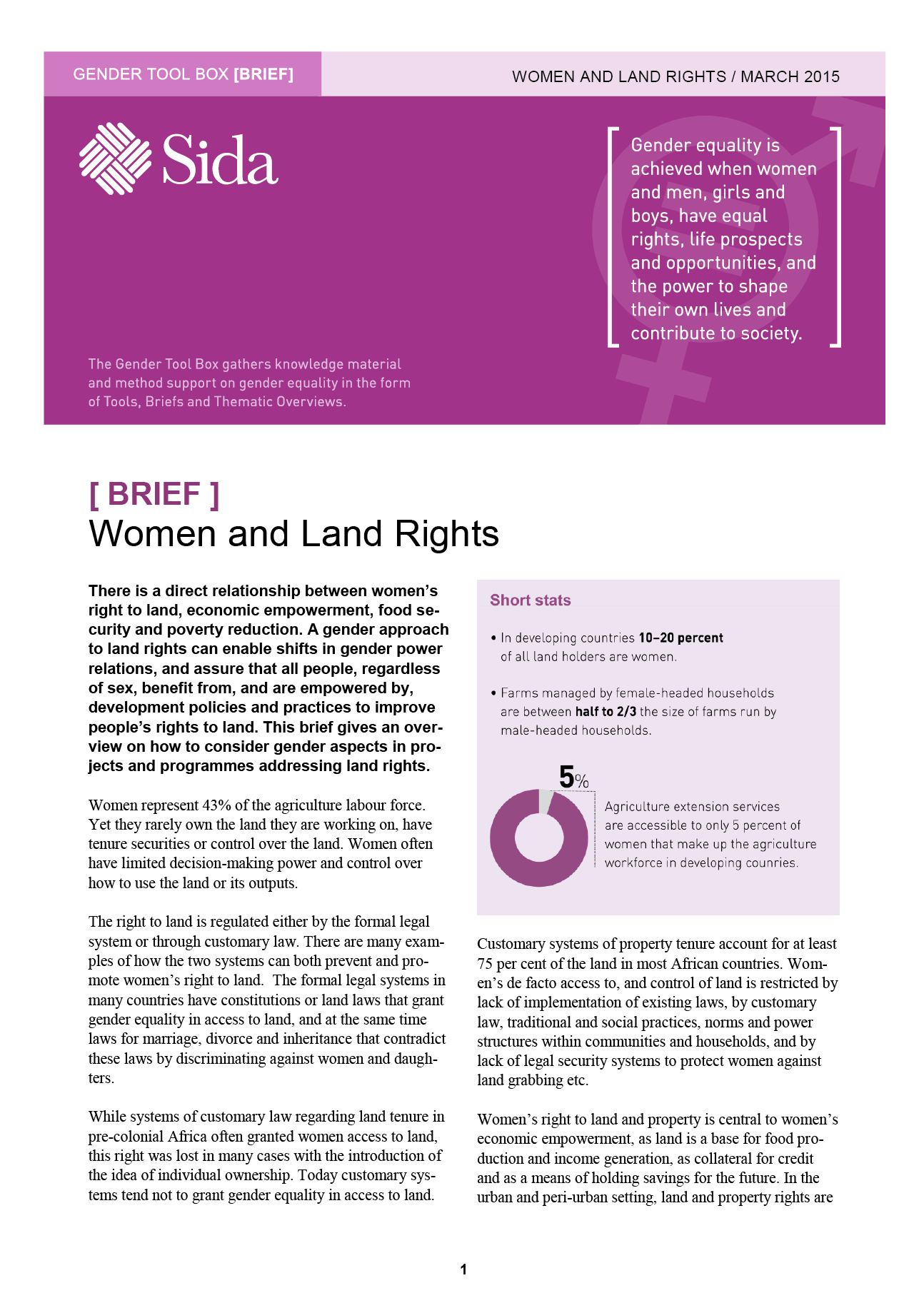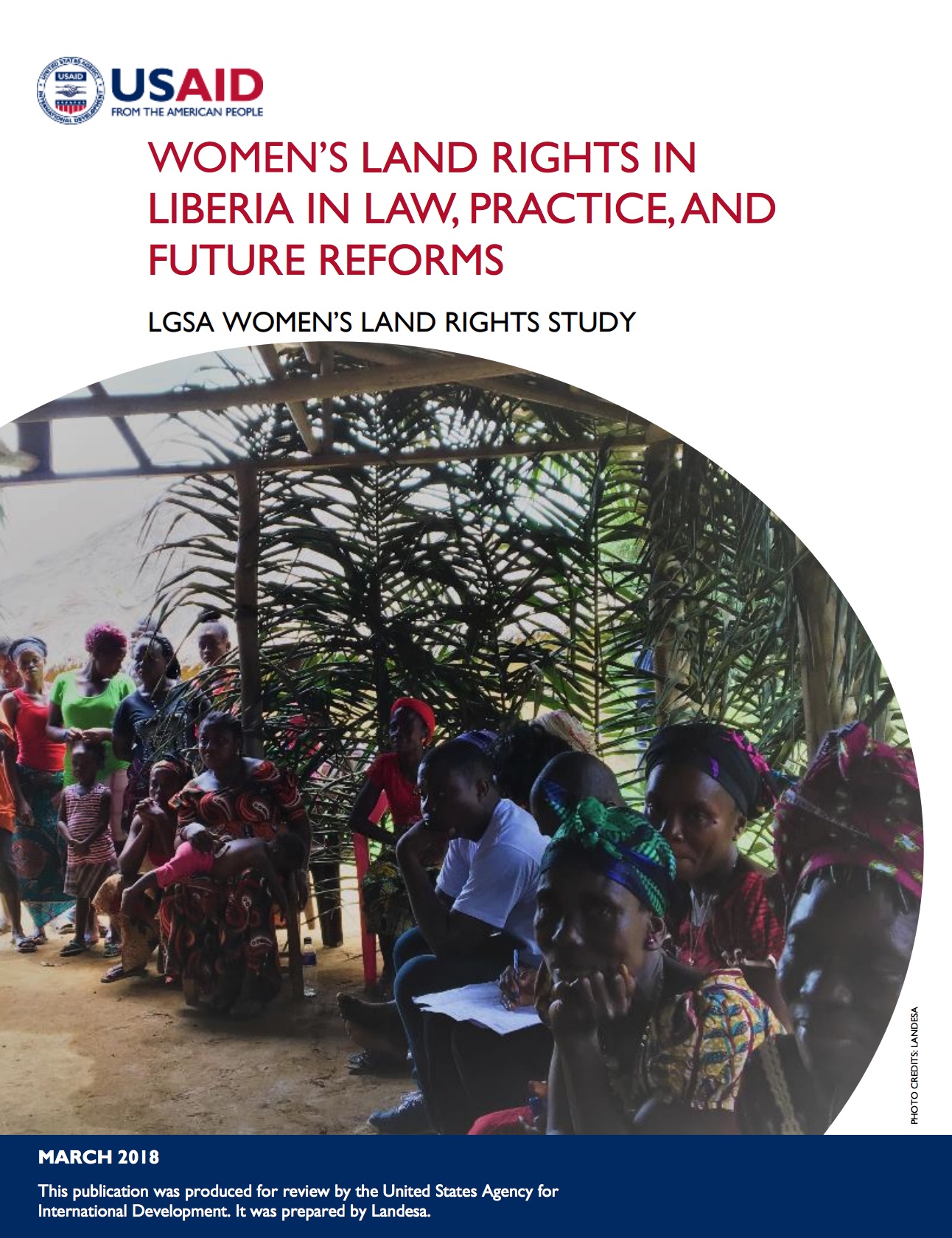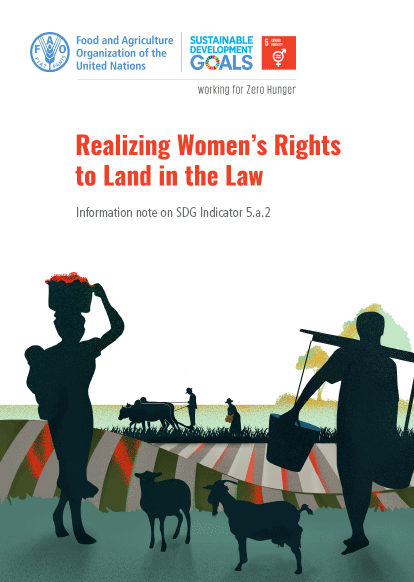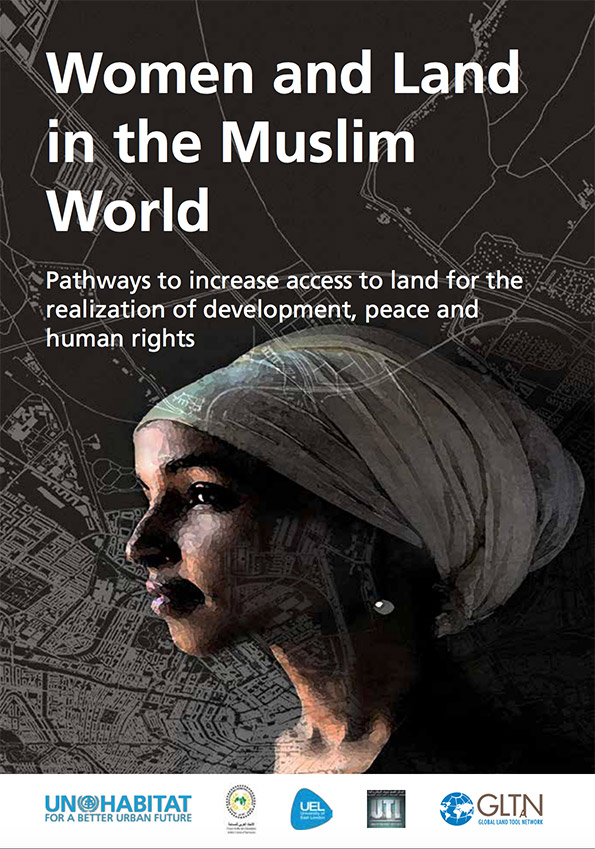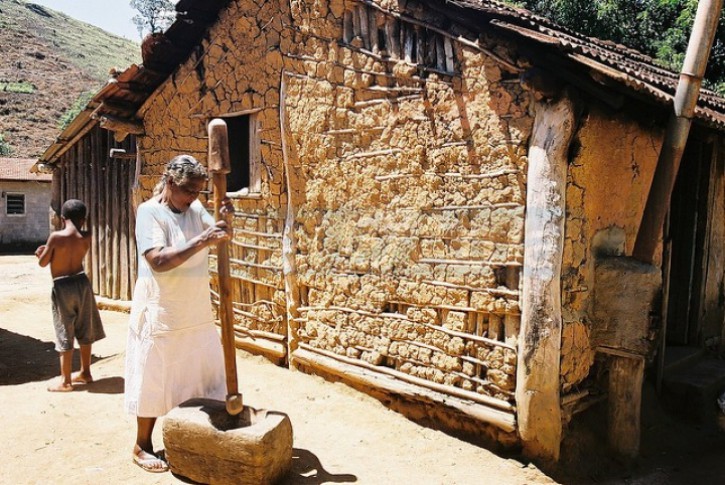Women’s Access to Land and Housing in Lesotho
Women need secure access to and control of land in order to realise their human rights. In order for the women to realise their land and inheritance rights it is important for the policy makers to have in place mechanisms and institutions to guide practice. This report sets out the status of women’s land and inheritance rights in Lesotho. The aim is to provide a consolidated baseline which can inform policy making, implementation and monitoring.

